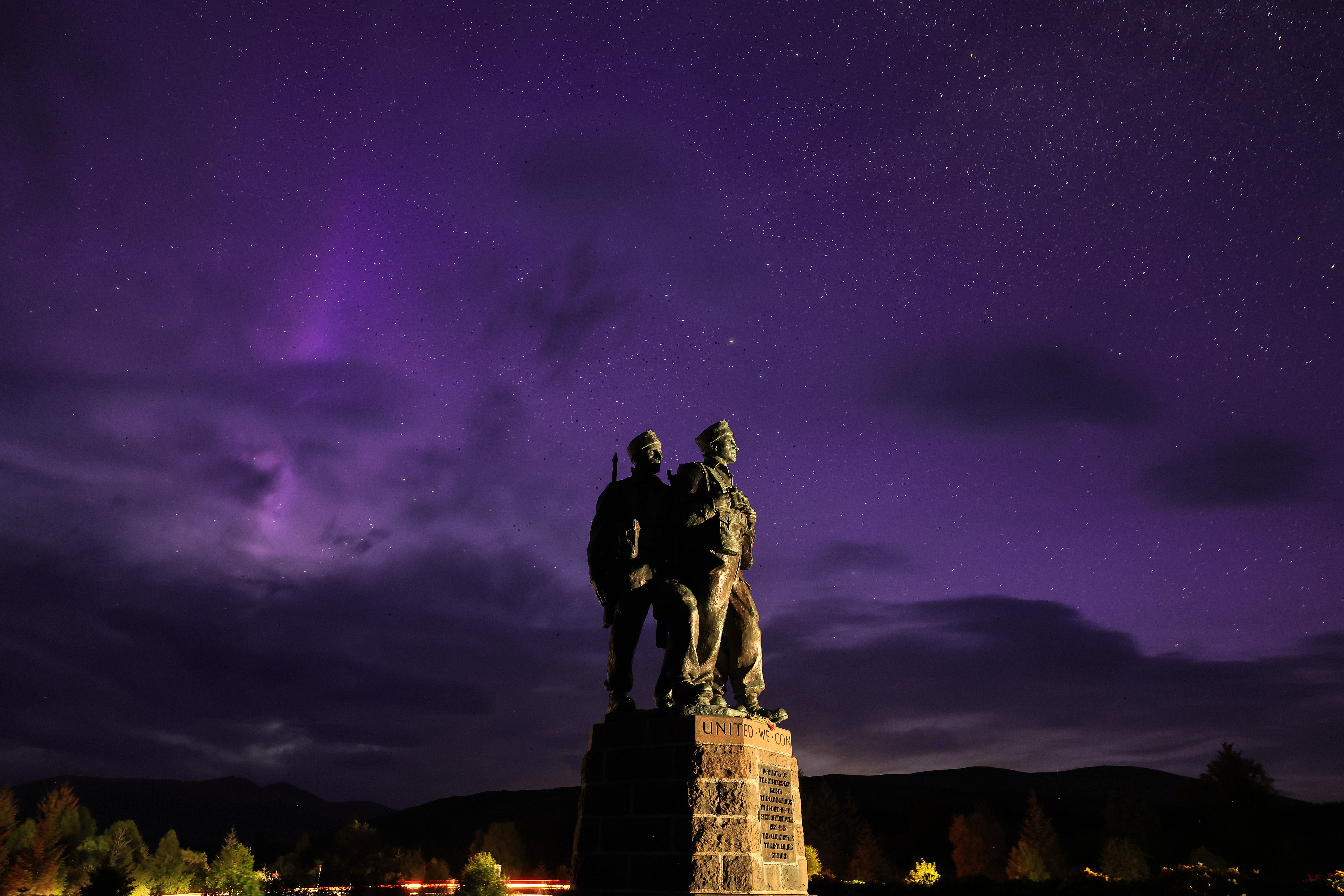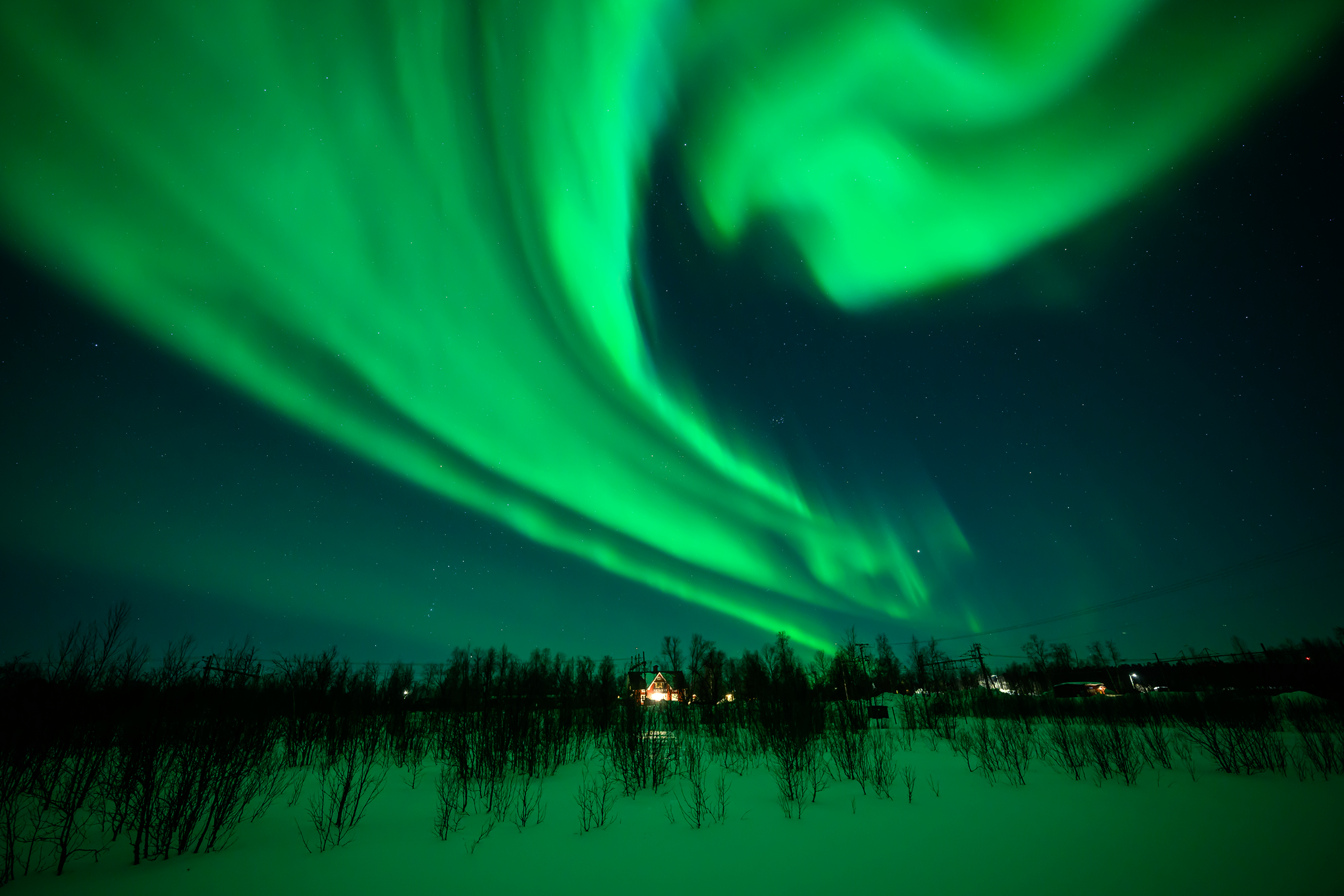Is there going to be a chance of seeing the Northern Lights tonight?
Weather experts have given their verdict on if people will be able to see the Northern Lights on Tuesday night
Your support helps us to tell the story
From reproductive rights to climate change to Big Tech, The Independent is on the ground when the story is developing. Whether it's investigating the financials of Elon Musk's pro-Trump PAC or producing our latest documentary, 'The A Word', which shines a light on the American women fighting for reproductive rights, we know how important it is to parse out the facts from the messaging.
At such a critical moment in US history, we need reporters on the ground. Your donation allows us to keep sending journalists to speak to both sides of the story.
The Independent is trusted by Americans across the entire political spectrum. And unlike many other quality news outlets, we choose not to lock Americans out of our reporting and analysis with paywalls. We believe quality journalism should be available to everyone, paid for by those who can afford it.
Your support makes all the difference.Could Tuesday night be another chance for Britons who have so far failed to catch the dazzling pink and green light show of the aurora borealis over their heads?
The huge geomagnetic storm that sparked a flood of stunning pictures and videos on social media lasted for at least four nights from Friday until Monday.
But what are the chances of catching the Northern Lights over UK skies again?

Is there going to be a Northern Lights show tonight?
The spectacle was seen across the UK and in parts of Europe after an extreme geomagnetic storm caused them to be more visible, the US National Oceanic and Atmospheric Administration (NOAA) explained.
BBC weather expert Simon King said on Sunday: “Forecasters at NOAA and the Met Office Space Weather centre are predicting the arrival of another strong CME [coronal mass ejections, which cause geomagnetic storms] on Sunday and into Monday.”
Yet for Tuesday, the Aurora Watch forecast predicts no significant activity in the evening and so the possibility of seeing the Northern Lights is expected be unlikely.
However, Dr Greg Brown, an astronomer at the Royal Observatory Greenwich, told MailOnline: “There are signs of another storm approaching within the next few days, which might boost the aurorae again.
“We are currently at solar maximum, when the sun is at its most active and flares, sunspots and coronal mass ejections are at their most common.
“While we remain at the sun’s peak, the chance of a solar storm remains quite high.”

Where will people be able to see the Northern Lights?
According to the group Aurora Watch UK, there are no predicted sightings of the Northern Lights for Tuesday evening, meaning it is unlikely to be visible by eye or camera from anywhere in the UK.
While it was visible throughout the country on Friday evening and Saturday, it was only in the norhtern areas such as Scotland that the spectacle was visible for the remainder of the weekend.
Given that it is notoriously difficult to accurately predict solar storms, Dr Greg Brown said this makes it “all but impossible” to know exactly when the next storm might hit.

Where have the Northern Lights been spotted?
Many skygazers were left disappointed on Saturday night after the breathtaking sights produced by the Northern Lights 24 hours earlier failed to materialise on the same scale.
Beautiful hues of purple, red, green and blue filled the skies across the north on Friday with the lights, called the aurora borealis, even spotted as far south as London.
A geomagnetic storm caused the lights to be more visible than normal and they were also spotted across parts of northern Europe and North America.
On Friday, there were sightings “from top to tail across the country,” said Chris Snell, a meteorologist at the Met Office, Britain’s weather agency.
He added that the office received photos and information from other European locations including Prague and Barcelona.
Images showed bands of red, purple and lime green illuminating the sky above Arthur’s Seat and Salisbury Crags in Holyrood Park, Edinburgh.
Further south, over St Mary’s Lighthouse in Whitley Bay on the north-east coast of England, locals flocked to the beaches to glimpse the spectacular lights there. And in Liverpool, the lights could be seen behind Anthony Gormley’s Another Place statue.

What causes the Northern Lights display?
Aurora displays occur when charged particles collide with gases in the Earth’s atmosphere around the magnetic poles.
Prof Haswell, head of astronomy at the Open University, explained how different colours within the aurora are formed and said: “Green comes from oxygen which is about 80 to 250 miles above the earth’s surface.
“The purple, blue and pink comes from nitrogen and when you get a very strong aurora sometimes you see a sort of scarlet red, and that comes from oxygen which is higher in the earth’s atmosphere, at an altitude of about 180 miles.”

Join our commenting forum
Join thought-provoking conversations, follow other Independent readers and see their replies
Comments